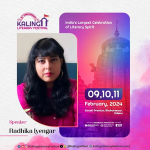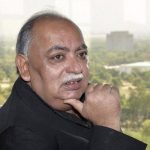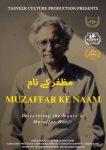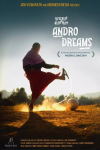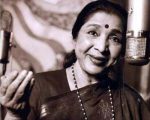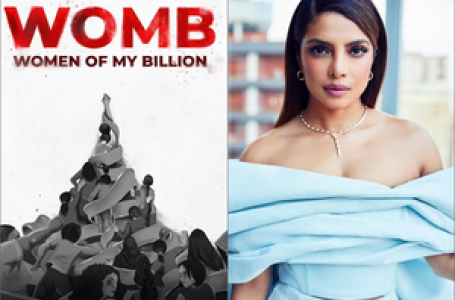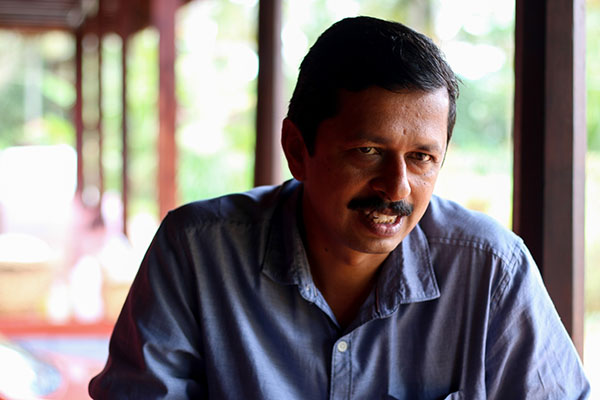
Moustache.
By Vishnu Makhijani
Nov 14, 2020
New Delhi: Hindu fundamentalists had panned his book on the dual discrimination that Dalit women face in Keralas Kuttanad region and the interplay of caste and politics when it was first published in Malayalam as “Meesha”, forcing its withdrawal. Now, with the Rs 25 lakh JCB Prize for Literature under his belt in its English avatar as “Moustache”, author S. Hareesh is confident it would be viewed in its proper context and that too by a wider audience that translations reach out to with such works.
“I am thrilled to have received the award. When the book was initially serialised, it had been subject to controversies and had been withdrawn due to the protest by Hindu communal forces. I felt that all the controversies that sprouted deprived it of proper reviews and reflections in a nature that I had hoped for it to have,” Hareesh told IANS in an interview.
“I believe that the recognition that the book has received on winning the JCB prize would give it the opportunity to be better understood and read. I also feel that a platform such as the JCB Prize would foster more translations from Malayalam and other Indian languages into English and other languages.
“Good translators are the key to this process. I was lucky to have had Jayashree Kalathil as my translator without whom the success of ‘Meesha’ into ‘Moustache’ would not have been possible,” Hareesh, who works for the Kerala revenue department and has also written two screenplays, added.
How did the book, the English version of which is published by Harper Collins, come about?
“I had (previously) published three short story collections. Like many writers, I had wanted to write a novel for quite some time. Vavachan who is the protagonist of ‘Meesha/ Moustache’, was a character whom I had known since childhood. When I learnt that he kept his moustache after he performed in a play, I was intrigued by this act and the idea of the novel sprouted.
The region of Kuttanad, where my story is set, holds many distinct characteristics. I had always wanted to write about its landscapes and the fioloktales and myths embodied in the region. Vavachan’s story was one that made for the perfect mould to infuse all the distinct traits that made up Kuttanad,” Hareesh explained.
But then, landscapes only skim the surface.
“Like the many other regions in Kerala, caste-based hierarchies and such social systems were a part of the lexicon in the times that ‘Meesha’ is set. Though this may not be so evident at the onset now, scratch the surface, and a caste-based society is very much a part of all arrangements and transactions that comprise Kuttanad’s social fabric today.
“Within each and every community that exists in the region, there is a strong current of gender biases that gleam through and for that matter, were you to peer closely into the life of a Dalit woman, she faces a system that is discriminatory on two fronts – one that distinguishes her for her gender and one that does the same for her caste. Such a system of biases and distinctions that put down the individual is a thread that I attempted to enunciate through ‘Meesha’,” Hareesh elaborated.
Thus, he found he needed “great many materials and references to write the novel. I had travelled through Kuttanad extensively for this. I had several exchanges with people in several villages that comprise Kuttanad; many of the elderly people that lived around the region gave me the information that helped me write the novel,” he said of the three years it took him to finish the book.
It’s little wonder that the book struck a chord with the JCB jury, with one of its members, Aruni Kashyap, an Associate Professor at the University of Georgia, describing it as “an astonishing and very original book”.
“I don’t know any other novel that is actually written in this way. It is political but also a feat in storytelling. At first when I read the book I was a bit confused. It took me a while to realise that this is because we are so used to reading novels that are far away from Indian storytelling traditions. There are many references to the ‘Ramayana’ in this book but I would say that the novel behaves more like the ‘Mahabharata’.
“In ‘Mahabharata’ this is rampant; stories are within stories, people come and tell long stories. This is a very common feature in many Indian narratives. I think ‘Moustache’ will be discussed for sure for its representation of caste politics, magic realism or folklore, the community, history of… Kuttanad; but I will remember this book for its daring storytelling. I’m delighted that an unruly novel, a misbehaving novel that defies our conventional understanding and expectations of what a novel should be, is taking this prize,” Kashyap added.
How did the screenplays come about?
“My first screenplay was for ‘Eden’ by Sanju Surendran . ‘Eden’ was an amalgamation of three short stories that I had written. My second screenplay was for Lijo Jose Pellisserry’s ‘Jallikattu’. The movie was based on a short story I had written called ‘Maoist’. In my view screenwriting isn’t an art form in itself, the film being a directors medium , I see the screenplay as notes and etchings that help guide the film maker and the film making process,” Hareesh said.
How does he balance his government job with this writing?
“I usually do my writing after my work hours. I am presently on leave from my duties so I have more time to myself to carry on my writing,” he said.
What of the future?
“I don’t have elaborate plans. I am amidst writing my next novel. I would like to spare more time to focus on my writing. I feel that writing is what I am good at doing and I want to continue the practise,” Hareesh concluded.IANS



